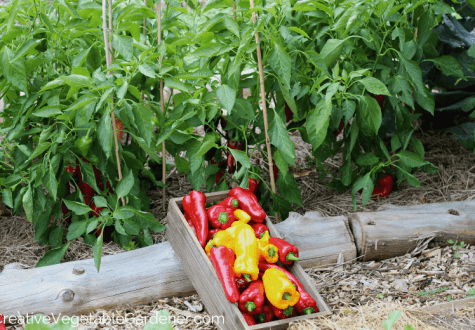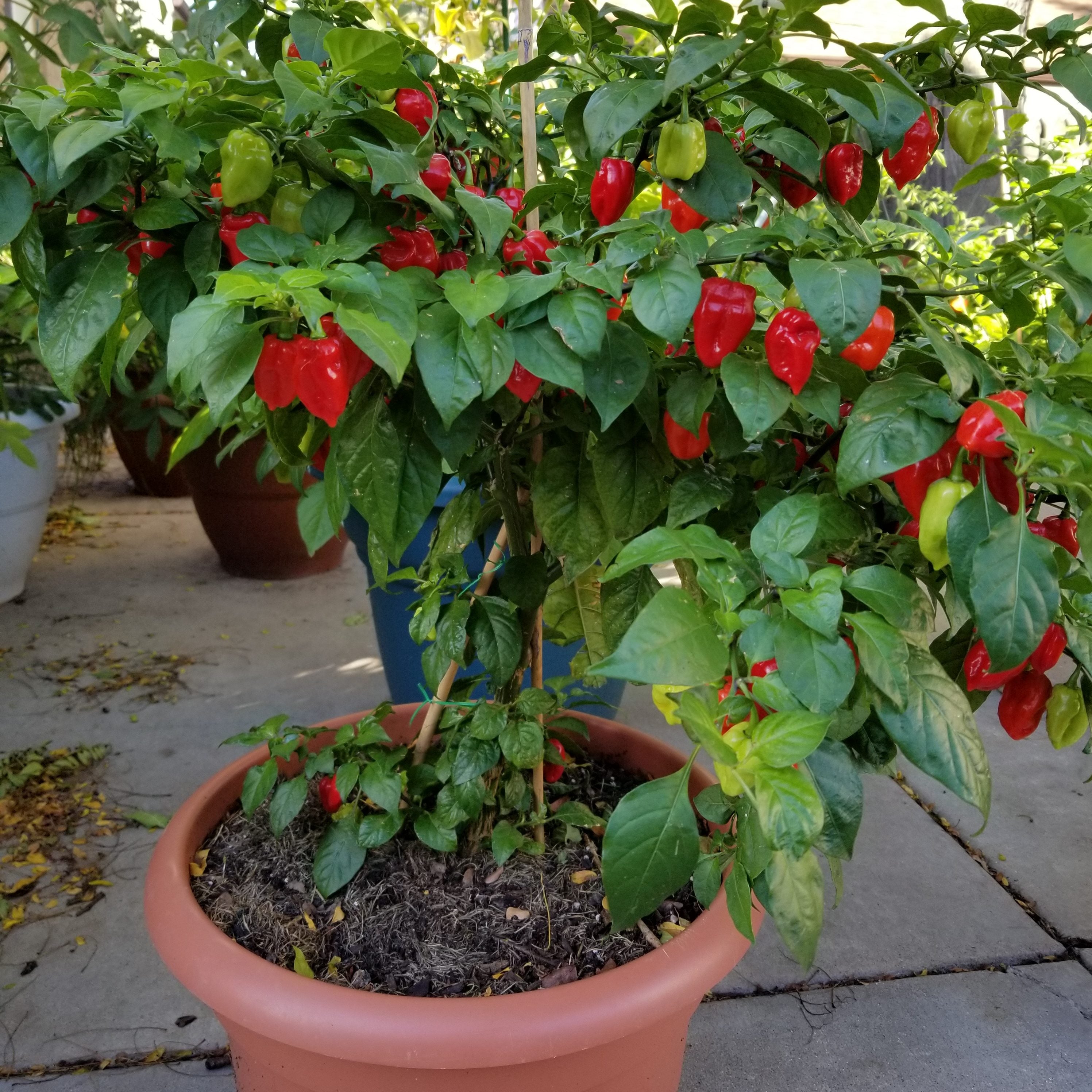Best Fertilizers for Peppers: A Comprehensive Overview to Increase Your Harvest
Best Fertilizers for Peppers: A Comprehensive Overview to Increase Your Harvest
Blog Article
Organic Vs. Synthetic Fertilizers: Which Is Best for Nurturing Healthy And Balanced Pepper Plants?
In the world of supporting healthy pepper plants, the option between artificial and natural plant foods stands as a crucial choice with significant ramifications. While both options aim to provide essential nutrients to sustain plant development, the nuances of their effect on the soil, plant wellness, and the atmosphere stimulate a debate that mirrors throughout the gardening community. Recognizing the unique advantages and possible mistakes of each fertilizer kind is essential for pepper growers looking for to enhance their returns while preserving a sustainable and eco-conscious method.
Advantages of Organic Fertilizers
Organic plant foods use a sustainable and environmentally-friendly method to beneficial pepper plants, offering essential nutrients without making use of synthetic chemicals. These all-natural plant foods are originated from organic sources such as garden compost, manure, bone meal, and seaweed, advertising soil health and biodiversity. Unlike synthetic plant foods, organic alternatives release nutrients slowly, guaranteeing a well balanced and consistent supply for pepper plants to thrive.
One considerable advantage of organic fertilizers is their capacity to improve soil framework and water retention. By enhancing soil health, organic plant foods advertise useful microbial task, which aids in nutrient uptake by pepper plants. Furthermore, natural plant foods reduce the danger of chemical run-off, shielding water sources from contamination and guarding the environment.
Additionally, natural plant foods add to long-term soil fertility by promoting the growth of advantageous dirt microorganisms. These microorganisms help break down organic matter, releasing nutrients in a kind that is quickly available to pepper plants. best fertilizers for peppers. By promoting a healthy and balanced soil environment, natural plant foods sustain lasting pepper farming techniques that profit both plants and the atmosphere
Disadvantages of Artificial Plant Foods
Artificial plant foods, in contrast to their organic counterparts, pose numerous downsides when utilized to nourish pepper plants, impacting both plant health and environmental sustainability. One significant downside of artificial fertilizers is their propensity to seep nutrients from the dirt rapidly.
Furthermore, the overuse of synthetic fertilizers can add to water air pollution. Excess fertilizers not taken in by plants can clean away right into water bodies, resulting in eutrophication, where algae blooms diminish oxygen degrees in the water, hurting aquatic life. Furthermore, artificial plant foods are commonly stemmed from non-renewable resources, such as nonrenewable fuel sources, adding to carbon discharges and environmental degradation throughout their manufacturing.
Nutrient Absorption Contrast
Reliable nutrient absorption plays a vital function in the general wellness and development of pepper plants. When comparing organic and synthetic plant foods in terms of nutrient absorption, organic plant foods have the benefit of providing an extra well balanced and slow-release source of nutrients (best fertilizers for peppers). Organic plant foods have a range of macro and micronutrients that are not just helpful for the Find Out More plants but also promote healthy and balanced soil microbial activity, which assists in nutrient uptake. On the other hand, synthetic plant foods usually provide a fast release of nutrients, which can bring about seeping and drainage, resulting in reduced nutrient absorption prices by the plants.
Moreover, natural plant foods boost dirt framework and water retention capability, enabling pepper plants to gain access to nutrients a lot more successfully. This better dirt high quality assists in origin advancement, making it possible for better nutrient absorption. Synthetic fertilizers, although initially improving plant development because of their high nutrient concentrations, may hinder long-lasting nutrient absorption by degrading soil wellness with time.
Ecological Impact Considerations

On the various other hand, artificial fertilizers, although typically more concentrated and immediately offered to plants, can have destructive impacts on the environment otherwise applied appropriately (best fertilizers for peppers). Their production calls for high energy inputs, causing greenhouse gas emissions and adding to climate adjustment. Furthermore, the drainage of excess synthetic plant foods can contaminate water resources, leading to eutrophication and damaging aquatic ecosystems.
Best Plant Food Practices for Peppers
When fertilizing pepper plants, optimizing nutrient uptake and lessening environmental effect are crucial considerations. To attain this, it is important to adhere to best fertilizer methods customized to the particular needs of pepper plants. One critical practice is to do a soil examination before applying any kind of plant foods. This test can determine the pH level of the soil and identify any kind of nutrient shortages, leading you in choosing the most ideal plant food formula.
An additional important practice is to feed pepper plants at the right time. Commonly, peppers profit from receiving fertilizer at growing and then again when they start to click this site blossom. Over-fertilizing can lead to nutrient discrepancies and hurt the plants, so it is essential to adhere to recommended application rates.
Furthermore, picking a balanced plant food with an NPK ratio that suits pepper plants' needs is fundamental. Organic plant foods, such as compost or manure, can be superb choices as they launch see this page nutrients slowly and boost dirt structure with time. Artificial fertilizers can provide a fast nutrient boost when required. Ultimately, integrating organic and synthetic plant foods sensibly can help support healthy pepper plants while decreasing environmental influence.
Conclusion

Organic fertilizers provide an environmentally-friendly and sustainable approach to beneficial pepper plants, providing vital nutrients without the use of synthetic chemicals. Unlike synthetic fertilizers, organic choices launch nutrients gradually, making certain a constant and well balanced supply for pepper plants to flourish.
Synthetic plant foods, in contrast to their natural counterparts, posture numerous downsides when utilized to nurture pepper plants, impacting both plant wellness and ecological sustainability. When contrasting natural and artificial fertilizers in terms of nutrient absorption, natural plant foods have the advantage of supplying a much more well balanced and slow-release source of nutrients.Furthermore, natural fertilizers improve soil framework and water retention capability, allowing pepper plants to accessibility nutrients a lot more effectively.
Report this page